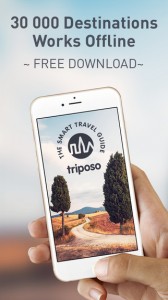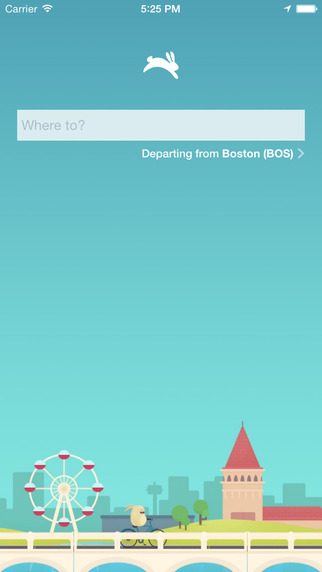Travelling abroad is a wonderful experience that everyone should have, but as unrest grows around the world many would-be travellers may be feeling anxious about visiting their dream destinations.
The following tips will help you to plan a safe trip, and to stay vigilant and out of harm’s way, wherever you are.
1. Check before you go
Some destinations may well be too risky at present, and authorities will advise that unless absolutely essential, you should not travel to or within certain regions. Check the gov.uk website for location-specific advice and information, and if necessary, pick somewhere else to visit.
2. Stay informed
Keeping reading and watching the news while you are away, both for the country or region where you are and the rest of the world. If any potentially risky situations arise they will give up-to-the-minute advice for staying safe.
3. Careful where you point your cameras
Obviously you will probably want to take lots of photos wherever you go, but just be careful near military bases, government buildings, or public locations such as airports. Shooting stills or video or using binoculars in these locations could lead to unpleasant misunderstandings, so unless you want to have your camera confiscated or be taken in for questioning, be sensible and obey any directions.
4. Stay on the right side of the law
Other cultures have very different laws values and taboos, and if haven’t made yourself aware of what they are you may find yourself unwittingly committing an offence and getting a hefty fine, or even arrested. Identify and adhere to local laws and customs so that you know you can stay out of trouble. Even if something isn’t against the law, certain behaviours can be seen as disrespectful by locals. If you don’t want to outstay your welcome in an area, take the time to find out how to behave.
This varies from country to country, so be sure to check gov.uk for info for all your destinations.
5. Stay vigilant
Unsuspecting people make the easiest prey for thieves, so if you look like you are on the alert they will most likely leave you alone. Keep looking around, noticing your surroundings and who is coming and going, and thieves will pass you by on the lookout for easier victims.
Crimes motivated by political unrest often target areas that attract foreigners and travellers such as hotels, bars, restaurants, embassies etc, so be extra vigilant in these areas and report anything suspicious to the local police.
6. Don’t flash your valuables or dress like a tourist
Thieves find a way to operate pretty much anywhere in the world, so wherever your destination, try to blend in so that you don’t advertise yourself as a tourist. Steer clear of new or expensive-looking clothes shoes and bags, and shun any hats or bags bearing the logos of tour operators. Take care not to display valuables like your mobile phone and camera, and consider using padlocks on any backpacks or luggage. Opt for digital maps downloaded to your mobile phone rather than paper, and avoid checking them too openly when walking.
Always keep your wallet and phone in your front pocket – never the back pocket – and in crowded areas move your backpack to the front of your body. Carrying a decoy wallet with a little cash and a couple of expired cards is also a great tip – should the unthinkable happen you can throw the decoy at the thief and hopefully keep your real one.
7. Take your old phone
If you don’t want to risk losing your nice shiny gadget, consider taking an old mobile handset with you. Make sure you have your emergency contacts programmed in, as well as local emergency numbers such as the police and embassy at your destination. If you’re travelling alone or in a risky area, mobile phones can be used for personal safety in many new ways – check out specialised safety apps such as Emergensee and Travel Safe.
8. Know the health risks
Some destinations require certain vaccinations, some of which need to be administered over the course of a few weeks. Check the NHS Fit For Travel website to make sure you know which vaccinations you need, and what other health risks you might need to be aware of while you’re away.
9. Don’t lose your documents
Having one of your bags get lost or stolen is never good, but if you have made copies of all your important documents then you can at least minimise the disruption to your plans and arrange for replacements quickly. Photocopy the photo page of your passport, the fronts and backs of any bank cards, your driver’s license, your travel insurance, accommodation info, tickets etc and keep the copies separate from the originals. It’s also very handy to scan the docs and email them to yourself and a trusted friend, so that you can at least print new copies if you lose the others (make sure you use a web-based mail account that you can access from anywhere).
10. Ensure you’re insured!
Having adequate insurance for your trip is vital, and if anything goes wrong – from getting robbed to falling ill, to your trip being cancelled due to natural disasters or political unrest – you will be very glad you took it out.
Why not give one of our advisors a call today on 01892 628584 to find out how we can help you stay safe on your holiday abroad or visit worldwideinsure.com for an instant online quote.
 Destination weddings are decidedly en-vogue. If you and your other half are one of the increasing number of couples taking to the skies to get married abroad take a peek at our top 10 wedding facts.
Destination weddings are decidedly en-vogue. If you and your other half are one of the increasing number of couples taking to the skies to get married abroad take a peek at our top 10 wedding facts.







